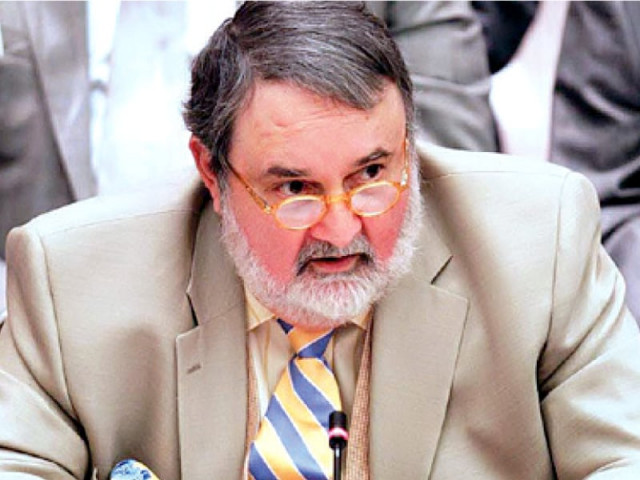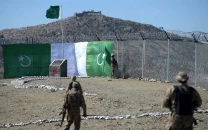Sindh Bachayo petition: Supreme Court questions local govt law
Chief justice says new system benefits elite, while province’s rural poor suffer.

The Supreme Court on Monday questioned the new Sindh Local Government Act 2012 adopted by the provincial assembly in October. While terming it ‘a distinctive system’, the court sought the notification of the new system to examine the rationale behind it.
Chief Justice Iftikhar Muhammad Chaudhry, heading a three-judge bench, asked the Sindh Advocate General Fateh Muhammad Malik, what the criteria behind some areas of Sindh being identified as ‘metropolitan’ were.
Barrister Zamir Hussain Ghumro of the Sindh Bachayo Committee had filed a petition in this regard. Ghumro said that the government has revived the Musharraf era 2001 ordinance which had earlier been repealed after a political struggle by many parties, including the ruling Pakistan Peoples Party (PPP).
He pointed out that all 162 provisions of the 2001 ordinance are now part of the new system, which has angered the people of Sindh.
Nationalist parties in Sindh have opposed the legislation ever since it was passed in a stormy session where the PPP and the Muttahida Qaumi Movement (MQM), which enjoy a comfortable majority in the provincial assembly, voted for it.

Under the new arrangements, the government notified Karachi, Hyderabad, Larkana, Mirpurkhas, Khairpur and Sukkur as autonomous metropolitans. The chief justice asked what the provincial government was now doing if it had relinquished almost all its powers, which were now shifted to the metropolitan administrations.
Chief Justice Chaudhry observed that the new system appeared to benefit the elite of the province, while the poor ‘haris’ of Sindh were left at the mercy of the old system.
“What was the rationale behind giving the status of metropolitan to Larkana?” the chief justice asked.
The court will take up the issue again on December 17, when it is to be informed about all previous notifications of governance in the province.
Hussain Haroon, former representative of Pakistan in the UN, also spoke against the new divide, saying that the decision was irrational, as different administrations are overlapping in the new system.
Ghumro argued before the court to declare the law as illegal, unconstitutional and unlawful since dozens of sections of the law wholly or partly were in clear conflict with Articles 2, 5, 9, 25, 97, 129, 130, 137, 142 and 175 of the Constitution.
Published in The Express Tribune, December 11th, 2012.



















COMMENTS
Comments are moderated and generally will be posted if they are on-topic and not abusive.
For more information, please see our Comments FAQ